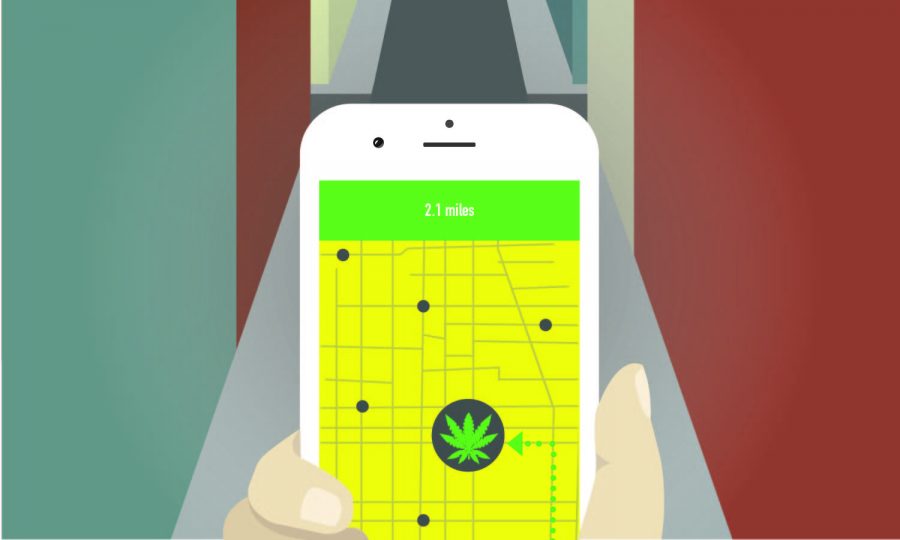Holds on marijuana licenses will not stop HerbFront’s debut
January 26, 2015
HerbFront, a member of Elmspring’s accelerator program, is set to debut its website the first week of February. However, Gov. Bruce Rauner’s delay to issue business licenses for the distribution and cultivation of medical marijuana could postpone HerbFront’s appearance in Chicago.
Billing itself as a medical marijuana real estate app, HerbFront matches medical marijuana growers and distributors with landowners that are willing to let them build cultivation centers and depots in accordance with city zoning regulations. Chicago’s zoning regulations mandate that marijuana cannot be sold within 1,000 feet of schools, parks or daycare centers.
The cultivation and distribution of medicinal marijuana was legalized in Illinois in April 2013. Nearly two years later, business licenses have yet to be issued for manufacturing and distribution.
Although the Governor’s office has given little information about why licenses have not yet been issued, Rauner said he is worried about how applicants were chosen. At a Sept. 16, 2013 news conference, Rauner expressed his opposition to the use of medical marijuana.
Matt Chapdelaine and Alan O’ Connell, founders of HerbFront, said they are optimistic that the delays will not hurt their website launch. They said their website has been very successful in other states that have legalized medical marijuana like Colorado, Delaware, and Maryland, and they expect the same results in Chicago.
Chapdelaine said unless business owners or contractors are familiar with the city’s zoning regulations, finding a location to set up shop that is in accordance with zoning regulations can take weeks or even months. Once business licenses are issued, owners have to submit a commercial address within 72 hours. HerbFront’s website benefits its users by condensing the months-long process of finding an acceptable location into an hours-long venture.
HerbFront is one of five members in Elmspring’s accelerator program, located at 1871 in the Merchandise Mart. Elmspring is a real estate-focused incubator that provides guidance and mentorship to startups in their crucial developmental stages. Nine out of ten startups fail because of a lack of resources, according to 1871.
Thomas Bretz, CEO of Elmspring, said the legalization of medical marijuana will provide a lot of opportunities for commercial businesses and startups.
“Any time there is a large business being created, there are always entrepreneurs being extremely creative about trying to make money off of that,” Bretz said.
Ali Nagib, assistant director of the Illinois National Organization for the Reform of Marijuana Laws, said he does not think Rauner would start the application process all over again because that would be a time consuming and costly process.
Illinois has already collected more than $5 million from the application process alone, Nagib said. Out of the 350 applicants that applied for business licenses, only 21 will receive a license to farm medical marijuana and 60 to distribute it. Farming license applications include a non-refundable $25,000 fee, while dispensary applications carry a $5,000 non-refundable fee, according to the Illinois Department of Agriculture.
NORML’s main concern is for patients. Nagib said holds on marijuana distribution licenses will not hurt businesses as much it will hurt patients who have been waiting for longer than a year to use marijuana as a form of treatment for their debilitating illnesses.
Out of the 13,000 applicants, 650 were able to complete the survey. By contrast, Colorado has approved 116,000 patients, 94 percent of whom qualified based on severe pain, not a qualifying condition in Illinois. Nagib said it would benefit both the patients and emerging businesses if more patients were approved for medical marijuana.
NORML is working to get more patients approved by getting additional medical conditions qualified and individuals with criminal records approved, Nagib said.








